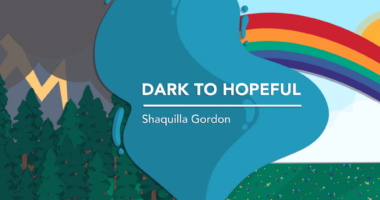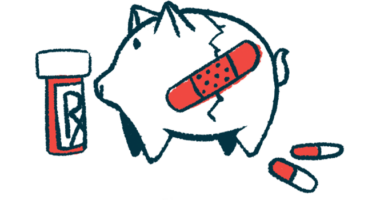How gallstones were the cause of my post-diagnosis stomach pain
Advice from others with PNH led to solving my mystery and getting me relief

Shortly after being diagnosed with a rare blood disorder, paroxysmal nocturnal hemoglobinuria (PNH), I began to experience attacks of stomach pain. They’d originate in my lower ribs and work their way down below my belly button. The attacks progressively got more severe and lasted longer: The first episode was only five minutes, but the last was about 45 minutes of excruciating pain. I went to the hospital during one of the latter attacks because it became unbearable.
I mentioned them to my hematologist, wondering if they were connected to PNH or my medication. We explored what could be causing the pain by eliminating my iron supplements, checking for stomach ulcers, and taking a general CT scan, but all results were normal.
A pattern I noticed is that the pain would occur only on days when I was treated with Soliris (eculizumab) and ate unhealthy things, like greasy fast food for dinner. I changed my diet for treatment days, which lowered the frequency of stomach pains. But over time, they came back — but now weren’t connected with my treatment pattern at all.
That all started to make sense when I spoke with another patient, who recommended checking my gallbladder. Apparently, many other patients had found that to be a problem.
I discussed the possibility of PNH-related gallbladder issues with my hematologist, who sent me for a sonogram. It turned out that I had gallstones, and previous testing hadn’t picked them up. These gallstones were the most likely suspect as the cause of my stomach pain, so I was somewhat relieved to get answers, if nervous because I’d never had surgery before.
From my previous, unrelated colonoscopies and the bone marrow biopsy that led to my PNH diagnosis, I was familiar with anesthesia and its effects on me. But surgery that required invasive incisions and mandated recovery time was new. I was concerned about how PNH would affect the process and what I could do to prepare.
Surgery and PNH
I discussed the next steps with my hematologist and asked for his recommendation of a surgeon who might be familiar with PNH. The surgeon he found was one he’d worked with closely, and the two of them made an excellent care team to ensure my safety. My hematologist spoke directly with the surgeon to fill him in on my diagnosis and any special conditions for my surgery.
The procedure was planned around my Soliris treatment schedule. My doctor wanted my body in optimal condition, so surgery was planned for two days after a treatment. He also prescribed me Lovenox (enoxaparin sodium) injections to thin my blood and prevent blood clots after surgery.
I connected with other PNH patients through social media to ask for their advice on gallbladder removal and was surprised to see how many had the procedure. They recommended bland foods for my meals after surgery, which would be gentle on my stomach. I planned for as much as I could.
The surgery was successfully done in 2021, and I’ve luckily not had any attacks of stomach pain since. Healing from the surgery was slightly different than I expected, probably because of my PNH. My surgeon said the recovery would last roughly one to two days, but I needed close to a full week before the surgery pain subsided.
I wish I’d had my gallbladder removed earlier. I hadn’t realized how many symptoms of gallstones I was experiencing because the PNH symptoms were so similar, but I felt so much better after surgery. I was so grateful to have connected with other patients during this time. Otherwise, I’m not sure my doctor and I would’ve made the connection to relieve my pain.
Note: PNH News is strictly a news and information website about the disease. It does not provide medical advice, diagnosis, or treatment. This content is not intended to be a substitute for professional medical advice, diagnosis, or treatment. Always seek the advice of your physician or other qualified health provider with any questions you may have regarding a medical condition. Never disregard professional medical advice or delay in seeking it because of something you have read on this website. The opinions expressed in this column are not those of PNH News or its parent company, Bionews, and are intended to spark discussion about issues pertaining to paroxysmal nocturnal hemoglobinuria.







